Submitted:
14 December 2023
Posted:
27 December 2023
You are already at the latest version
Abstract
Keywords:
1. Introduction
2. Microgrid and Virtual Energy Storage System for Participation in Energy Market
2.1. Grid-connected Microgrid
2.2. Virtual Energy Storage System
3. Optimal Capacity Determination Algorithm of Virtual Energy Storage System for Participation in Energy Market
3.1. 1st Stage Problem
- The VESS Initial SOC Constraint is expressed as follows:
- The VESS PCS Capacity Constraint is formulated as follows:
- The VESS BAT (Battery) Capacity Constraint is expressed as follows:
3.2. Generating Probabilistic Scenarios
3.3. 2nd Stage Problem
- Power Balance Constraint within the Microgrid
- Upper and Lower Constraints on Received Power
- Upper and Lower Constraints on ESS Charging/Discharging Amount
- Definition of VESS Charging/Discharging Amount
- Upper and Lower Constraints on VESS Charging/Discharging Amount
- Definition of Penalty Cost
- ESS SOC Constraint
- VESS SOC Constraint
3.4. Bender’s Cut
- Constraint on Estimated Operational Revenue Information Based on VESS Capacity
4. Numerical Example
5. Conclusions
Acknowledgments
References
- Iver Bakken Sperstad, et al., Energy Storage Scheduling in Distribution Systems Considering Wind and Photovoltaic Generation Uncertainties, Energies, 2019, 12, 1231. [CrossRef]
- Yi Lin, et al., Optimal Scheduling of Power Systems with High Proportions of Renewable Energy Accounting for Operational Flexibility, Energies, 2023, 16,5537. [CrossRef]
- Jae-Beom Jung, et al., Safety Assessment for External Short Circuit of Li-Ion Battery in ESS Application Based on Operation and Environment Factors, Energies, 2022, 15, 5052. [CrossRef]
- C. Ziras, et al., A new method for handling lockout constraints on controlled TCL aggregations, IEEE Power Systems Computation Conference (PSCC), 2018, 1–7. [CrossRef]
- M. Song, el al., Thermal battery modeling of inverter air conditioning for demand response, IEEE Trans. Smart Grid, 2017, 5522-5534. [CrossRef]
- L. Zhao, el al., A geometric approach to aggregate flexibility modeling of thermostatically controlled loads, IEEE Trans. Power Systems, 2017, 4721-4731. [CrossRef]
- S. Kundu, et al., Modeling and control of thermostatically controlled loads, 17th Power Systems Computation Conference, 2011.
- Y. Jang, et al., Optimal HVAC System Operation Using Online Learning of Interconnected Neural Networks, IEEE Trans. Smart Grid, 2021, 12, 3030-3042. [CrossRef]
- W. Li, et al., A clustering-based approach for “cross-scale” load prediction on building level in HVAC systems, Appl. Energy, 2021, 282, 116223. [CrossRef]
- Z. Zou, et al., Towards optimal control of air handling units using deep reinforcement learning and recurrent neural network, Building and Environment, 2020, 168. [CrossRef]
- H. Hao, et al., Optimal Coordination of Building Loads and Energy Storage for Power Grid and End User Services, IEEE Trans. Power Systems., 2018, 9, 4335-4345. [CrossRef]
- J. Wu, et al., Multi-time scale energy management of electric vehicle model-based prosumers by using virtual battery model, Appl. Energy, 2019, 251, 113312. [CrossRef]
- M. Song, et al., Hierarchical Scheduling of Aggregated TCL Flexibility for Transactive Energy in Power Systems, IEEE Trans. Smart Grid, 2020, 11,2452-2463. [CrossRef]
- Chakraborty, et al., Virtual battery parameter identification using transfer learning based stacked autoencoder, 17th IEEE International Conference on Machine Learning and Applications, 2018. [CrossRef]
- Chakraborty, et al., Stochastic Virtual Battery Modeling of Uncertain Electrical Loads Using Variational Autoencoder, American Control Conference (ACC), 2020. [CrossRef]
- W. Zhang, J. Lian, C.-Y. Chang and K. Kalsi, Aggregated modeling and control of air conditioning loads for demand response, IEEE Trans. Power Systems, 2013, 28, 4655-4664. [CrossRef]
- Precedence research, Microgrid Market (By Connectivity: Grid Connected, Off-grid Connected; By Type: AC Microgrids, DC Microgrids, Hybrid; By Offering: Hardware, Software, Services; By Power Source: Diesel Generators, Natural Gas, Solar PV, CHP, Fuel Cell, Others; By Storage Device: Lithium-ion, Lead Acid, Flow Battery, Flywheel, Others; By Power Rating; By End-Use) - Global Industry Analysis, Size, Share, Growth, Trends, Regional Outlook, and Forecast 2023-2032.
- Farid Hamzeh Aghdam, et al., Optimal scheduling of multi-energy type virtual energy storage system in reconfigurable distribution networks for congestion management, Applied Energy, 2023, 120569. [CrossRef]
- S. Bifaretti, et al., Grid-Connected Microgrids to Support Renewable Energy Sources Penetration, Energy Procedia, 2017. [CrossRef]
- S. Kundu, et al., Modeling and control of thermostatically controlled loads, 17th Power Systems Computation Conference, 2011.
- Huimin Wang, et al., Integrated operation mode of grid-connected microgrid considering double-layer demand response, IEEE PES Innovative Smart Grid Technologies Asia, 2019. [CrossRef]
- Hanumantha Rao Bokkisam, et al., Blockchain-based Peer-to-Peer Transactive Energy System for Community Microgrid with Demand Response Management, CSEE Journal of power and energy systems, 2022, 8. [CrossRef]
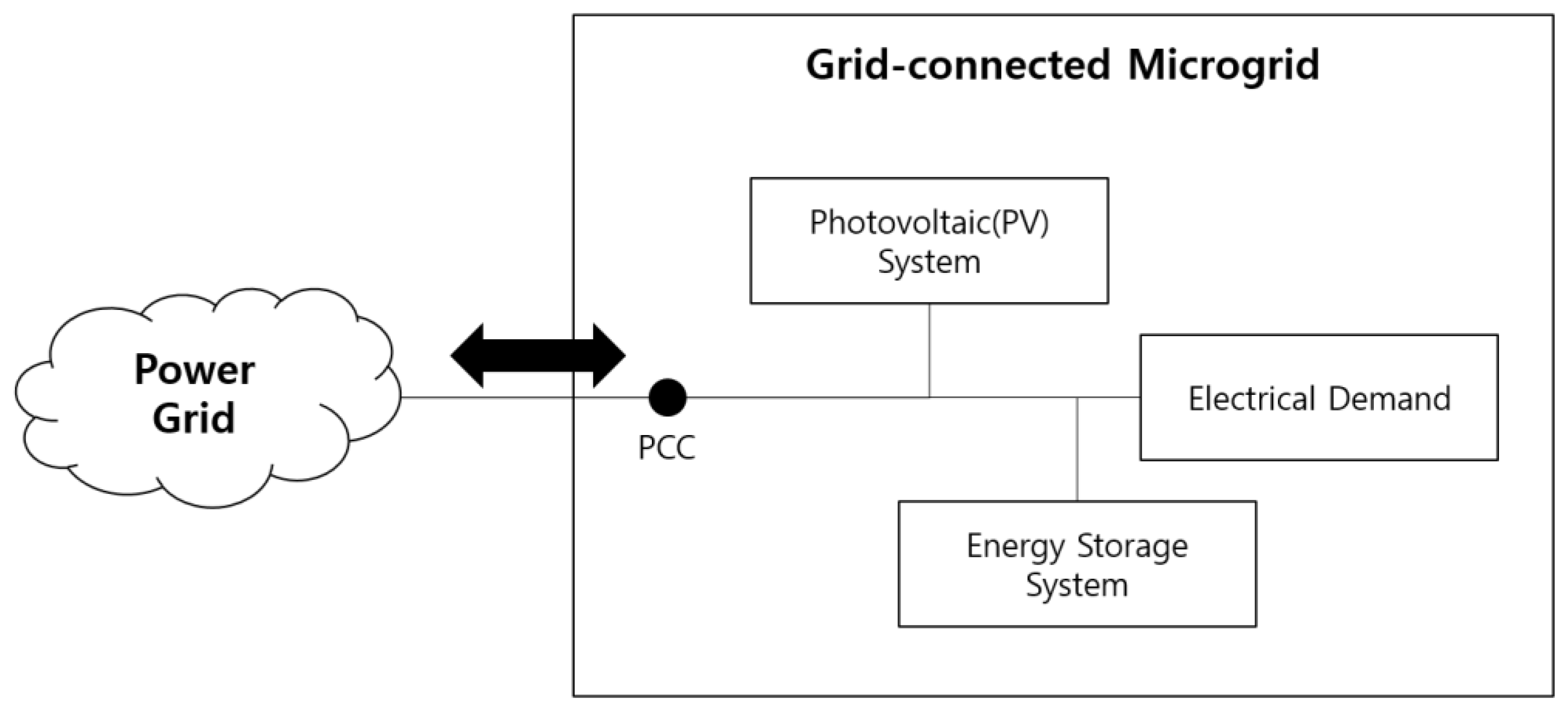
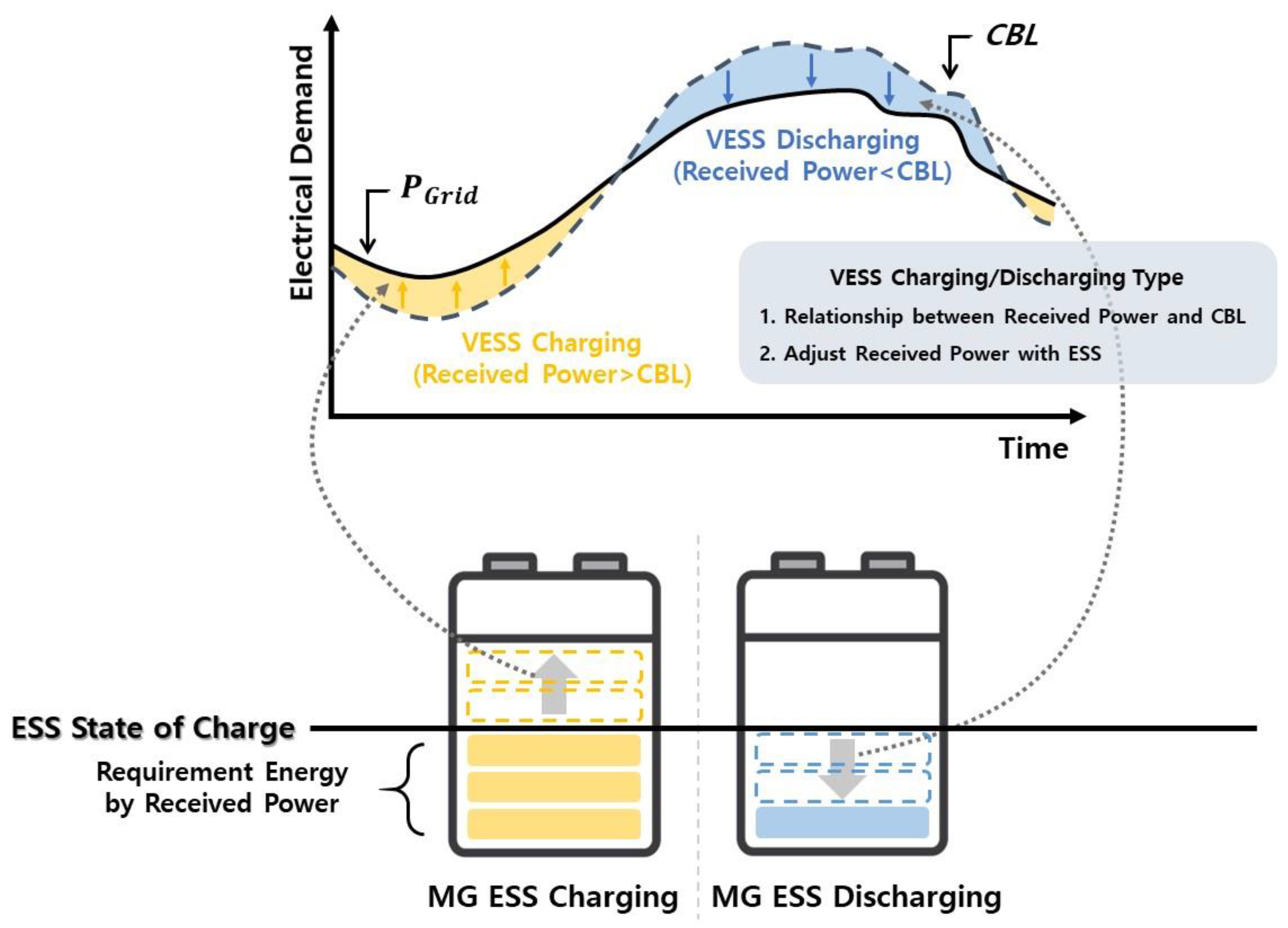
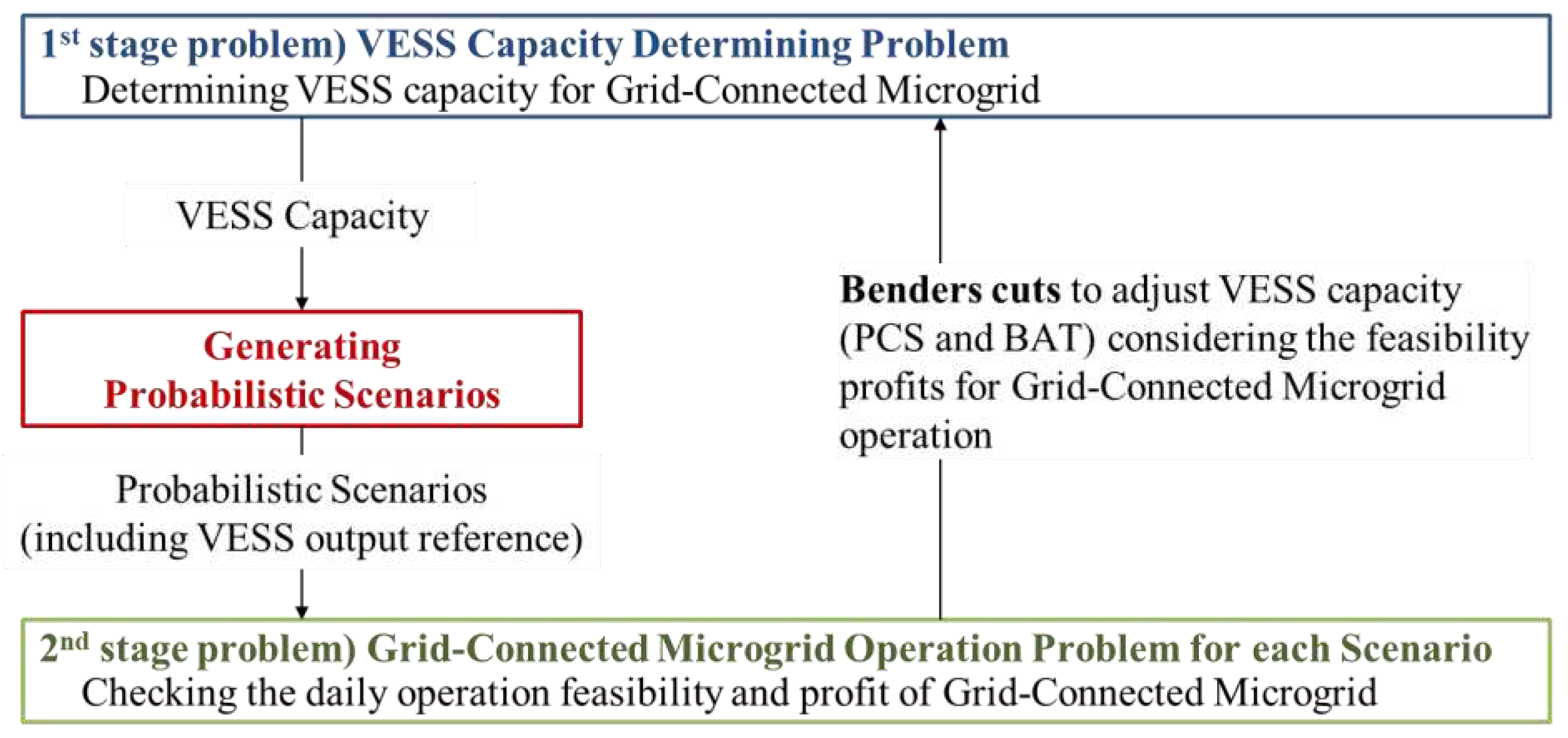
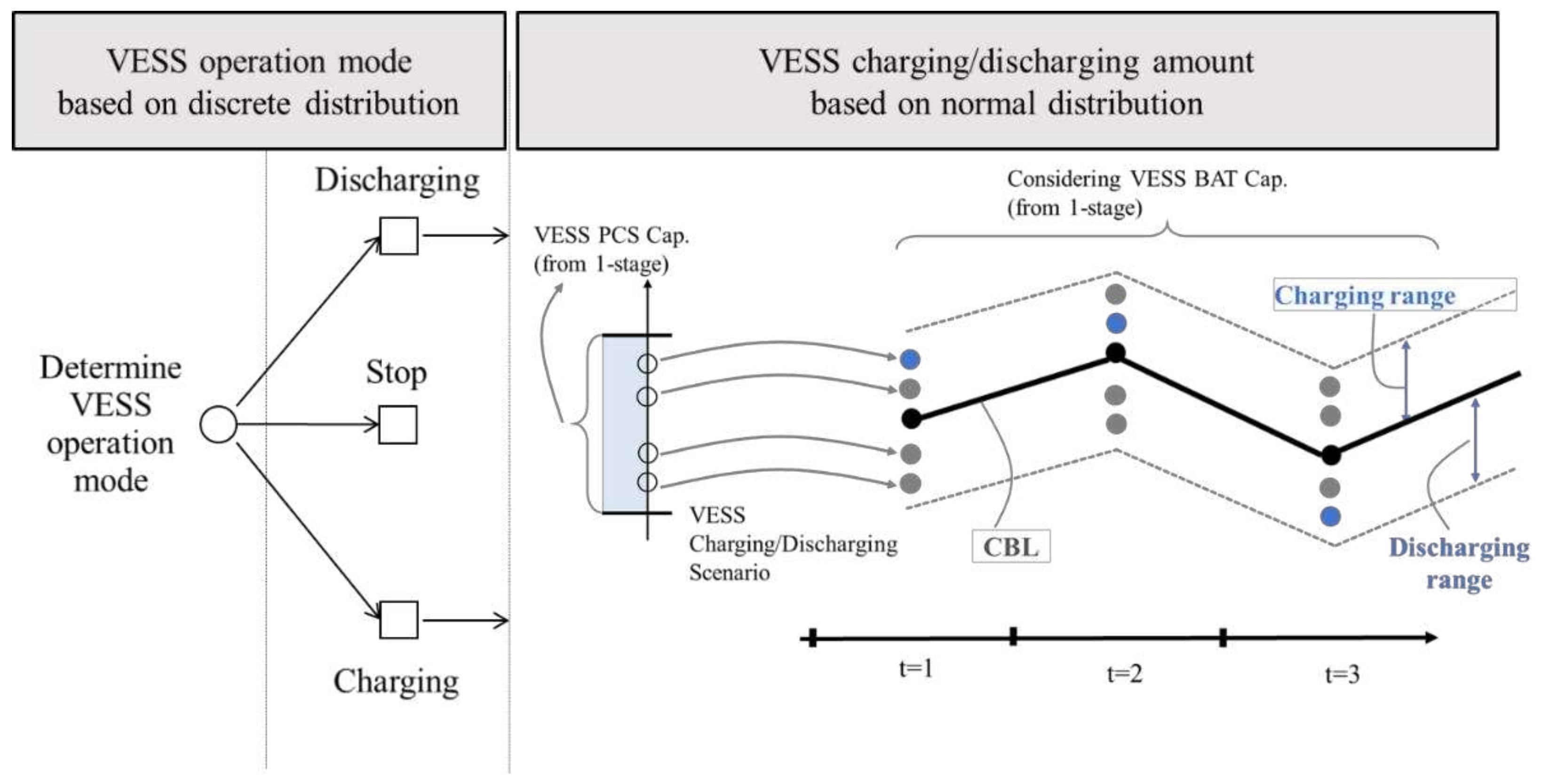
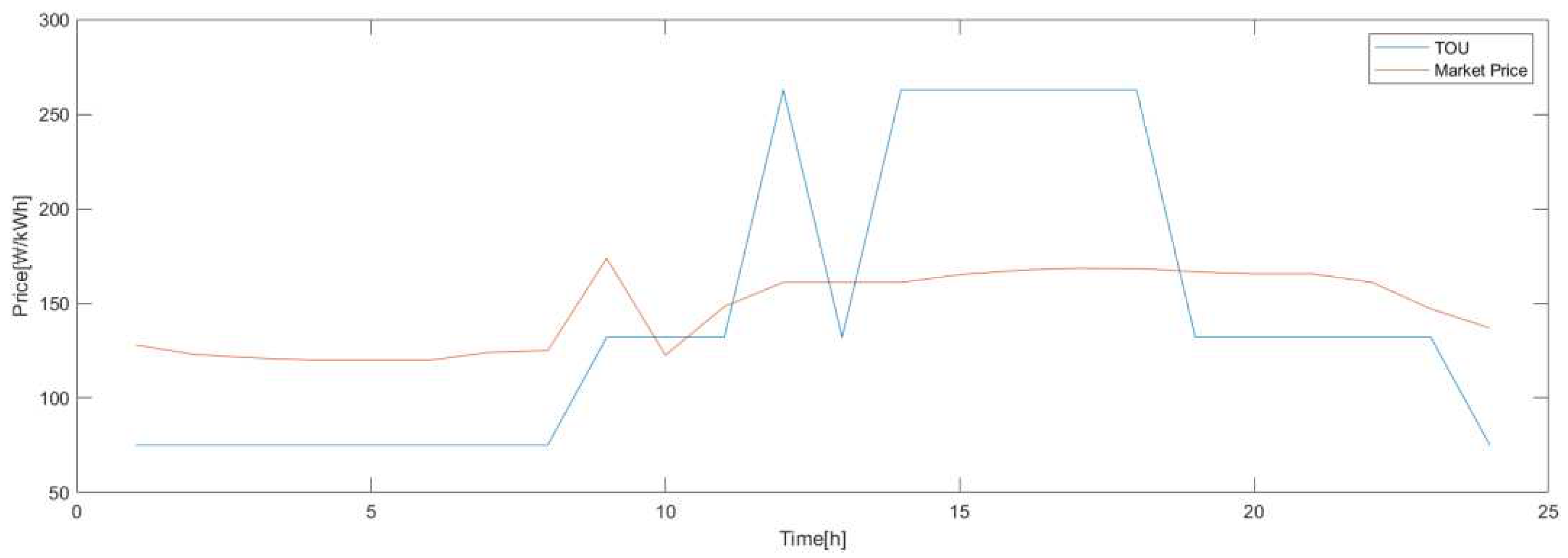
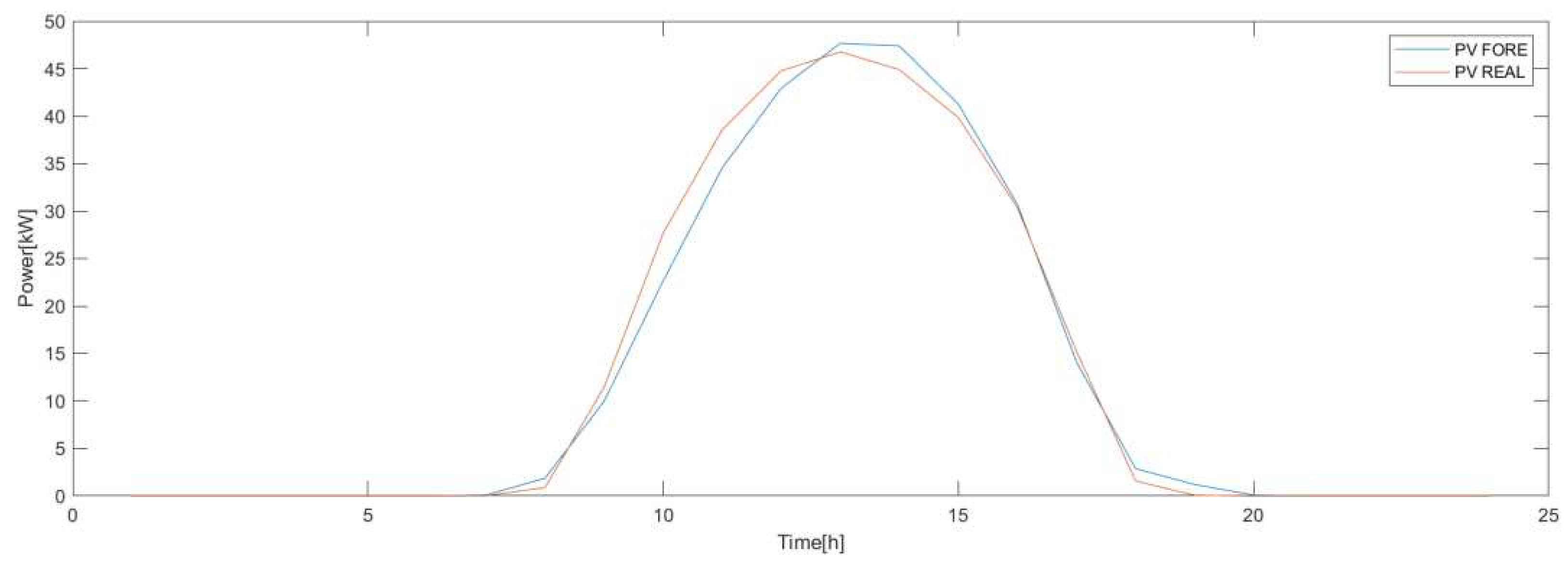
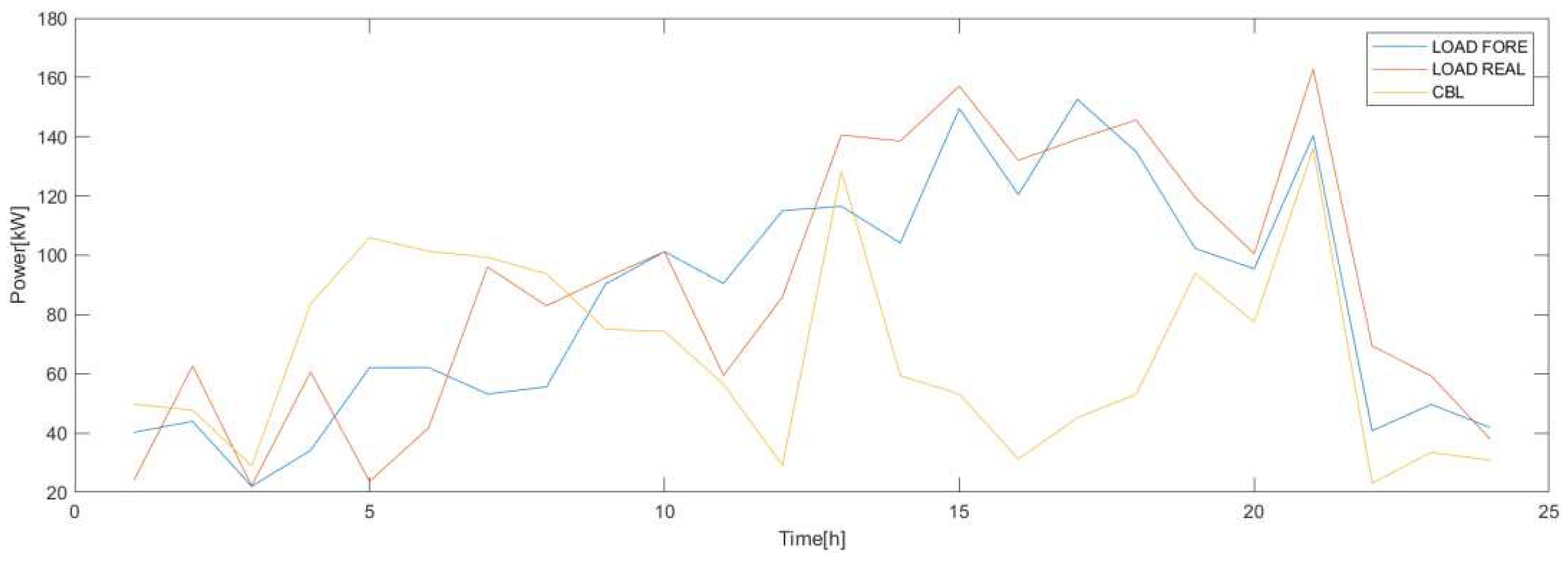
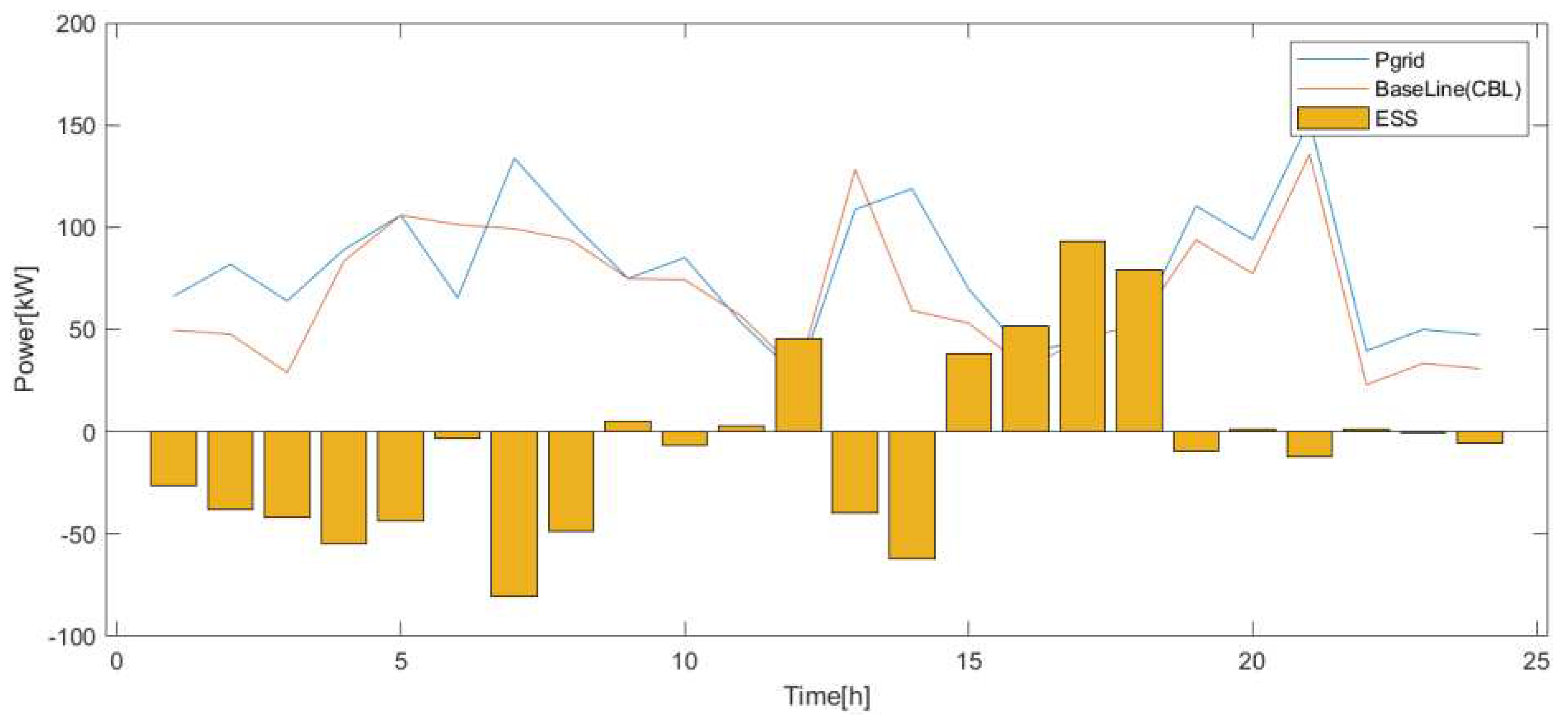
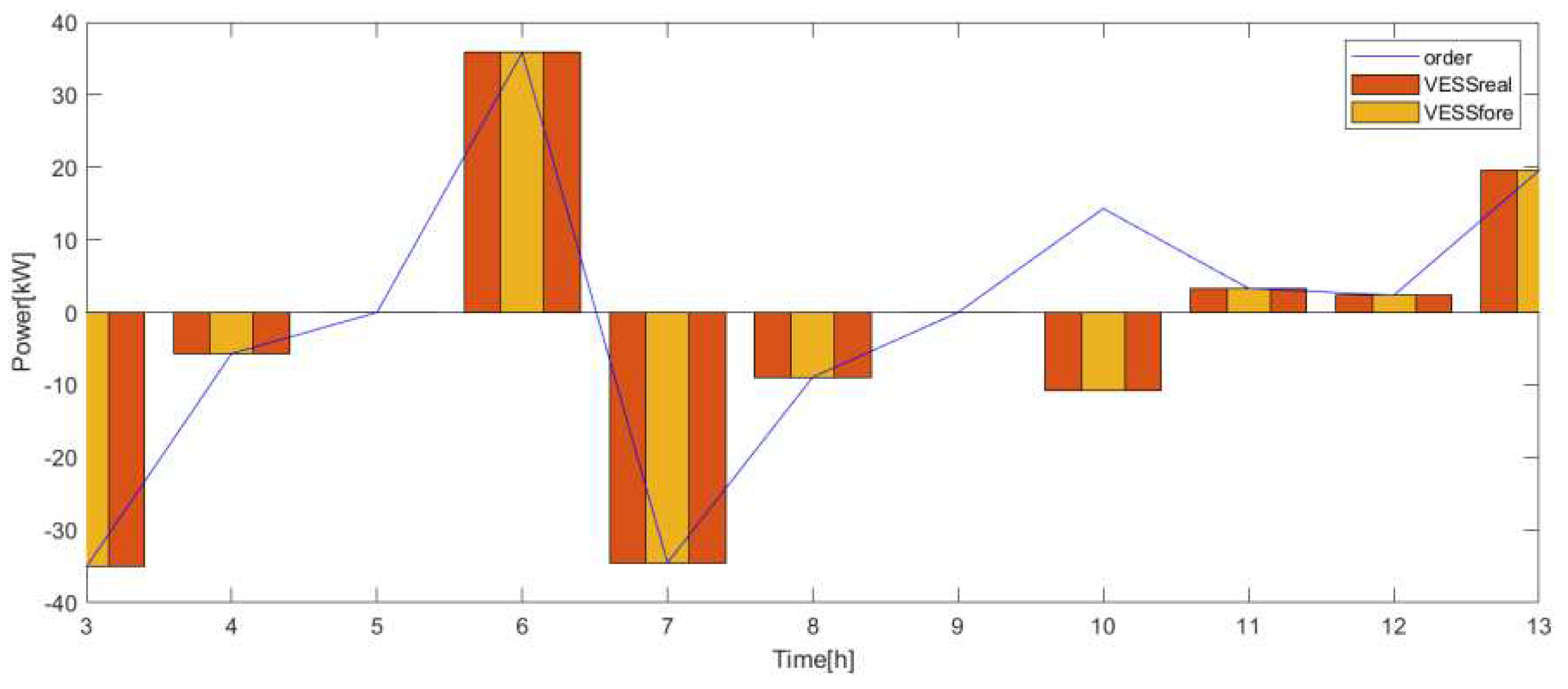
| DER | Parameter | |
| PV | Capacity | 50kW |
| ESS | Capacity | 500kWh |
| Charging Limit) | 100kW | |
| Discharging Limit) | -100kW | |
| Efficiency) | 0.95% | |
| Min/Max SOC | 20~90% | |
| Initial SOC | 20% | |
| Power System | Grid Max) | 170 |
| Grid Min) | -170 | |
| VESS | Initial SOC | 0 |
| Efficiency) | 95% | |
| Min/Max SOC | 0~100% | |
| Maximum PCS Capacity | 100 | |
| Maximum Battery Capacity) | 350 | |
| SMP | ||
| Number of Scenarios() | 100 | |
| Order Time | 3H~13H | |
Disclaimer/Publisher’s Note: The statements, opinions and data contained in all publications are solely those of the individual author(s) and contributor(s) and not of MDPI and/or the editor(s). MDPI and/or the editor(s) disclaim responsibility for any injury to people or property resulting from any ideas, methods, instructions or products referred to in the content. |
© 2023 by the authors. Licensee MDPI, Basel, Switzerland. This article is an open access article distributed under the terms and conditions of the Creative Commons Attribution (CC BY) license (http://creativecommons.org/licenses/by/4.0/).




